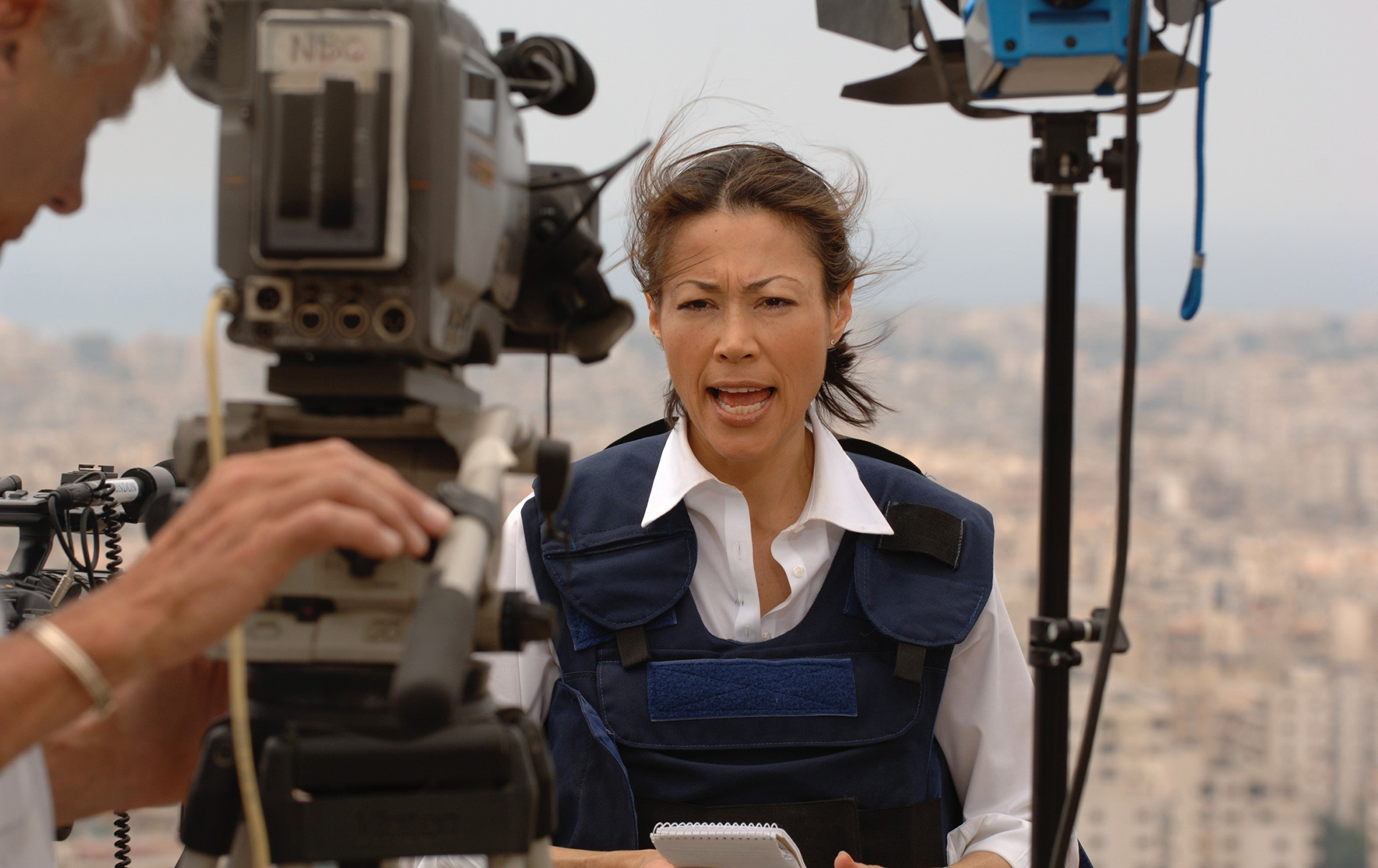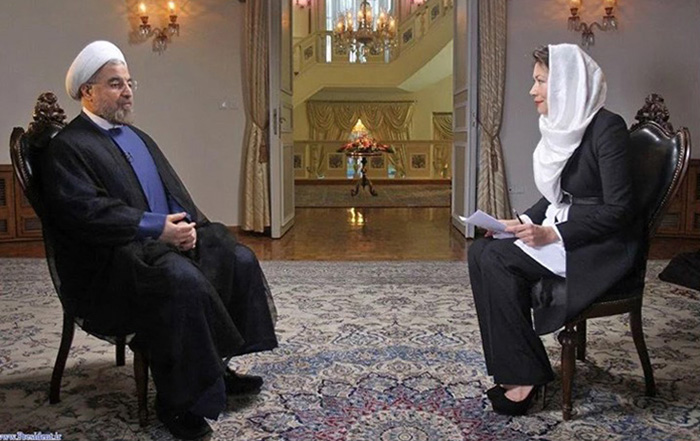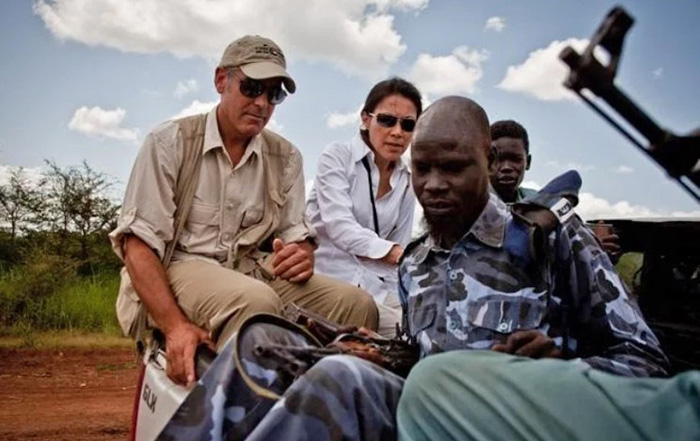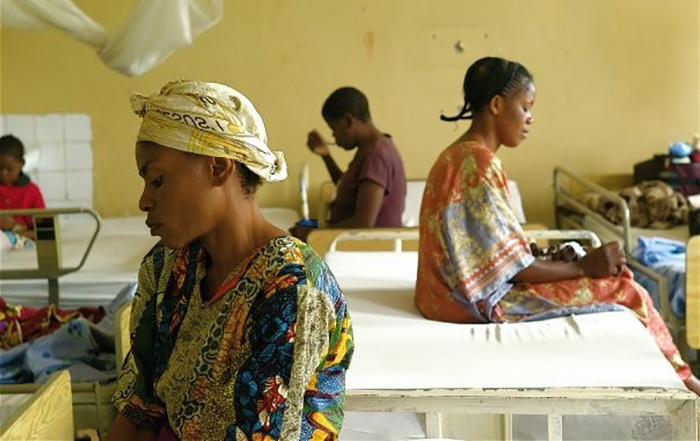Interview
Title photo: Ann Curry in Beirut covering Lebanon War in 2006. Photo by Drew Levinson
by Britta Muzyk-Tikovsky – May 19, 2021
Diamonds are the hardest and toughest material in the world. They are also a symbol for reliability and endurance – growing some 400 kilometers inside the earth’s fiery hot volcanic mother rock and brought to the surface by eruptions. For some, diamonds are a best friend. Others are diamonds themselves, formed over time through their tireless work ethic, unfailing dedication and ability to respond to even the harshest of challenges. The purest among them defy flaws by staying true to their self-set cause.
Ann Curry, a multi-award-winning journalist and photojournalist, is a former NBC News Network anchor, international correspondent, and trusted interviewer. Numerous events form the facets of her journalistic career, which spans more than three decades. She has reported on conflicts, genocides and tension on nuclear programs, humanitarian disasters and environmental and human rights challenges.
Many chiefs of state in countries torn apart by conflict, among them Iran’s President Hassan Rouhani, Syria’s President Bashar al-Assad and Saddam Hussein’s close advisor and Foreign Minister Tariq Aziz, have answered Curry’s questions in exclusive and news breaking interviews. The four US Presidents who served from January 1989 through January 2017, George Herbert Walker Bush, Bill Clinton, George Walker Bush and Barack Obama, have sat across from her interview desk.
Some of the world’s most influential advocates of civil and human rights, including the Dalai Lama, Maya Angelou and Archbishop Desmond Tutu, or Hollywood icons Angelina Jolie, George Clooney and Brad Pitt discussed with her the challenges facing humanity and how to solve them. Curry’s work has taken her to many countries in the Middle East and around the globe, such as Afghanistan, Sudan, Serbia or North Korea.
Venturing to the Arctic, Antarctic, Japan and the South Pole she has interviewed scientists and native peoples documenting the impact of climate change visibly seen in glaciers melting and land in western states in the U.S. increasingly drying up. South Africa and Botswana saw her focusing on the AIDS epidemic, while in Somalia and Kenya she uncovered and reported on terrorist networks. Her stories have always served one central goal: to provide objective information about the issues facing humanity in the modern age.
How did she become the journalist trusted by both people in power and members of the public? What skills should aspiring journalists acquire in order to create impactful stories, deliver reports that have the power to change?
During Collision, one of the world’s largest tech conferences to connect people and ideas that can change the world, I was honored to be one of the first German authors to interview Ann Curry and find out.
In her early teens, Curry reveals, she learned one of two important lessons. Speaking with her father about what career she would want to pursue in future he gave her this advice: “The most important thing is to find something that is of service for the people.” Because then, at the end of her life, she could say that it had mattered that she was born. The second lesson was provided by a senior and somewhat grumpy journalist as her career began to take shape. He cautioned her not to trust anyone, not even her mother. While this might seem a little over the top, there is truth to it.
“Everybody has a reason for telling you a story. They have a purpose in mind when sharing it with you and it’s their side of the story,” agrees Curry. Therefore, it is paramount to research stories as thoroughly as possible. Only by viewing stories from different angles and hearing opposing sides will they be told right. And Curry is convinced that this is a crucial function of journalism: to protect the public by telling the truth.
“The most important thing is to find something that is of service for the people.”
In the 1990s, Curry set out to report on truths that were happening in faraway places, removed from the gaze of her fellow citizens. “There was not a turning point or a one-time calling,” she muses. But past experiences of her mother who came from a war zone had an influence on her decision. Curry’s parents were born on opposite sides of the world.
Her father was an American who pursued a career in the Navy. Her mother saw the light of day in Japan, where she survived bombing and would meet and marry her husband years later. When her father got stationed in Guam, an unincorporated territory of the US located in the Western Pacific, they moved there. The largest of the Mariana islands, Guam had been captured by the Japanese from the US after the Pearl Harbor attack and won back by American forces close to the end of the Second World War. It was here that Curry was born, the eldest of five siblings. Several years later the family moved to the US.
It was the true story of war, received first-hand from her mother, that nurtured her dedication. “The main reason to go to countries with conflicts was to create awareness for human suffering overseas,” says Curry. She wanted to cover stories focusing on people who were little heard.
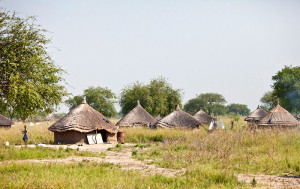
South Sudan. Photo: Envato.
“People who had to endure so much, who were treated unjustly and unfairly and didn’t have people in power who protected them.” Indeed, it often was worse. Those in power wanted to hide the true stories of their fellow citizens. “They would make almost every effort to keep you from telling the truth. And the truth is, now and then, that harm is caused by humans – more than often by those who want to further increase their power by pursuing ethnic cleansing.”
The journalist in her whose upbringing had given her a strong sense for right and wrong had found her calling. Equipped with empathy and courage she set out with a team to report on conflicts, genocides, and humanitarian disasters. Despite being shot at in countries like Somalia and dodging bombs in the Nuba Mountains of Sudan, in Lebanon or Syria, she strove always to uncover the truth.
One time in Darfur saw her sneak across the border while trying to avoid attacks from hostile parties who approached in helicopters, military vehicles or sometimes mounted on a horse. Mastering the risk made it possible for her to see and document the vast suffering of black African tribes there. Bringing these stories to life was important, but not on account of those who joined her on her missions. While hunting down the facts she and her team tried to stay out of harm’s way which was, in the first place, not intended for them.
“Yes, we took risks,” admits Curry. “We could always get caught in a dangerous situation as nothing was really predictable.” But you can’t report on a crisis from the safety of your sofa. One time, she recalls, in a Darfur refugee camp, she stood against the sun and a young boy who saw her and might have been frightened, dropped to his knees, looking up at her. He was in rags, unbathed and dirt-stained – a stark contrast to Curry in clean clothes, and with the memory of her early morning shower still lingering in the air.
Out of instinct, Curry raised her camera and took a shot. “Instantly I was befallen by a feeling of guilt that almost mortified me,” she admits. “I thought, how could I take a photo of this boy, intruding on his privacy?” A man who had stood nearby and witnessed the scene approached to say just two words: “Thank you!”
Before she could answer, he continued: “Thank you for capturing this. Thank you for telling our story and for appreciating the value of other human beings.” Nowadays where anybody can capture a scene with their smartphone the message contained in Curry’s story cannot be overstated. The people you report on look into your eyes, reaching far into your soul to decipher the true nature of your intentions. Real journalism is nothing without credibility.
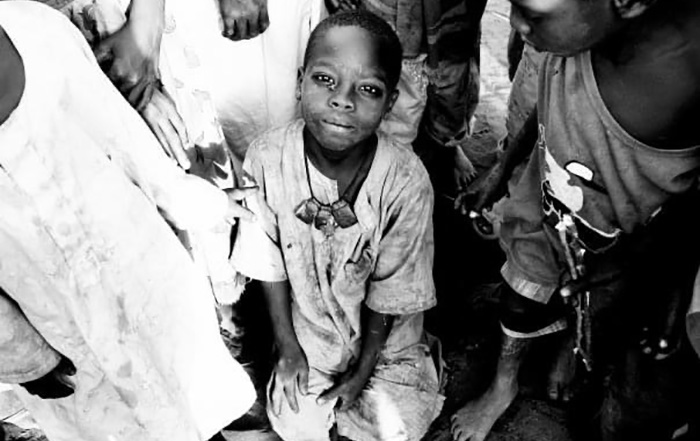
No. 1 Mission
Driven by the desire to make suppressed voices heard, the greatest worry she had during these times was the wellbeing of her team. On numerous missions to uncover the truth in war-stricken countries including Congo, Lebanon and Israel the stories were important, but always came second.

Congo. Photo: Envato.
Curry’s no. 1 mission was to get her team out safely. Recalling those days, she gives a modest sigh: “And I managed to. Nobody in my team got hurt, captured or shot at despite the risks we all took.”
Throughout the years, her team stayed mostly the same. The heat of their shared experience welded them together; making them allies and friends, who could step into each other’s roles as needed. They were driven by a common purpose. Her team was bound by loyalty, which resulted from Curry’s people-first attitude. “I would do something new before anybody from the team would do it,” she points out. Curry wasn’t someone who thought in management terms, which in those days could often be described as one person in charge telling everybody else what to do. Unintentionally, she was a person who led by example. Creating buy-in. Putting everybody on the same page. To be full, not of oneself, but of empathy for others. A most desirable character trait that we can all learn from.
“Success is not what you have, but how hard it was to get it.”
Staying true to yourself and following your own mission for the benefit of humanity is an act of willpower. It takes strength. Every day. And energy. Anybody who claims Curry has been unaffected by her experience of war zones would be mistaken. On top of this were the constant battles with studios to get her stories reported at all. Fights over what the audience needed, or didn’t need, to know.
“Especially for areas that are far away from our everyday lives it is so important to let the people here know what’s happening there,” Curry says adamantly. “It’s the responsibility all of us have to make the future smarter for our children.” One does not need to be a refugee to acknowledge the fact that there are so many fleeing their countries. Suffering as they do, branded with visual and unseen marks that will remain throughout their lives.
And for anyone for whom life has become a seemingly insurmountable challenge, whether through the advent of life-threatening experiences or other obstacles closer to home the question of Why persists. Salvation or the answer may come one day. Until then, the best we can do is uncover the truth, and focus on finding the answer to a different question: what can we learn from the situation? The answer not only relieves us of the burden of Why but provides an incentive to do better, to take action, to help others.
Nurturing passion for humanity in journalism
Curry encourages young people to think about others with compassion: “Open up your heart for other human beings. It will make you stronger and more human yourself. Convince news managers about the benefits of reporting on people who live elsewhere.” She is convinced that we are all connected and that our actions have an effect on ourselves in the future. “We need to know and acknowledge that others exist.”
In order to do so journalists must ask what is motivating them. Prioritizing fame and fortune is not helpful. “It has to be a pure feeling and you need to be interested in the truth, in telling the truth in a fair way. Even if this means that you must fight and overcome your own biases,” Curry emphasizes. It is important to keep in mind that journalists work for the people who read their stories and not for the managers who hand out their paychecks. “This will enable you to listen to others, hear what they have to say and ask the right questions. All of which will lead to true stories. Stories that people will enjoy reading.” The benefit will be twofold. Satisfied readers mean happy managers. And happy managers will be glad to pay your salary.
But motivation is not enough. There is something else needed. Writing, recording a podcast, shooting a film are all skills that can be learned. “It’s integrity you need because you are accountable for the stories you tell. And you will be held accountable,” Curry knows from experience. Therefore, it’s paramount to do what’s right and not what others want us to do. The good thing is that, while upbringing and social background matter, integrity is a choice every person can make. “It’s not something you are born with miraculously. It certainly helps if you have parents – like my father – who have a strong sense of what’s right and wrong.”
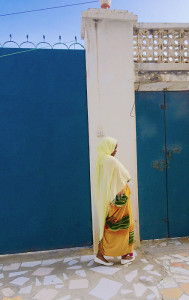
Somali Style. Photo: Envato.
Her face lights up as she adds: “It is utterly rewarding if you are successful by giving the truth to people.” What is equally important for good journalism is for authors to be independent and free of any power that follows its own agenda. “The human race has faced numerous existential threats in its existence. Why are we the survivors of so many fatalistic situations in the past millennia? Because we communicated. Our ancestors saved lives by warning others that tigers were after them. They nourished each other by saying where the food was.” According to Curry this is proof that the truth has saved us in the past and can again in future. Because it’s important to acknowledge that the truth is always connected to the broader story.
Quality over quantity
One of the most important skills to create impactful stories is writing. Words carry so much weight and it’s important to get the true meaning across right. “I even took grammar classes again in college to hone my skills,” Curry shares. One lesson she took from this was that it’s not the amount of words that is essential but their quality. “When you write, read your texts again and reduce the words. Then repeat the process.”
According to her, it does not take many words to tell the truth right. What is more important is clarity. Newsrooms turn to advertising income to foot the bill for good journalism. Credibility through independently and accurately researched stories can therefore only be maintained if journalists and the sales department or investors of the company do not get involved in each other’s work.
“Give people accurate information so they can make up their mind and build their own opinion.”
After researching her vast journalistic output, listening to her TED talk on “How to restore trust in journalism” and her TEDx talk on “Witnessing Humanity”, seeing how she communicates with her followers on Twitter or Facebook and, most importantly, speaking with her in person, I have formed an opinion.
Ann Curry is a diamond in her profession. But she is more than that. Ann Curry is a brilliant. As a specially cut diamond, a modern brilliant has 58 facets on its round top surface. The cut of a brilliant collects light in an extraordinary way, which provides the pure glow responsible for attracting the eye. Curry’s life seems to have been shaped by at least 58 facets.
With her recent work including the series “We’ll Meet Again”, documenting the reunions of people who met during historic moments; the live series and future platform “Chasing the Cure”, which focuses on finding solutions to rare medical conditions; and articles for the National Geographic Magazine, I am convinced that Ann Curry will continue to be a role model for journalism and a sparkling star in the sky of humanity.
Edited by: Niall Sellar

